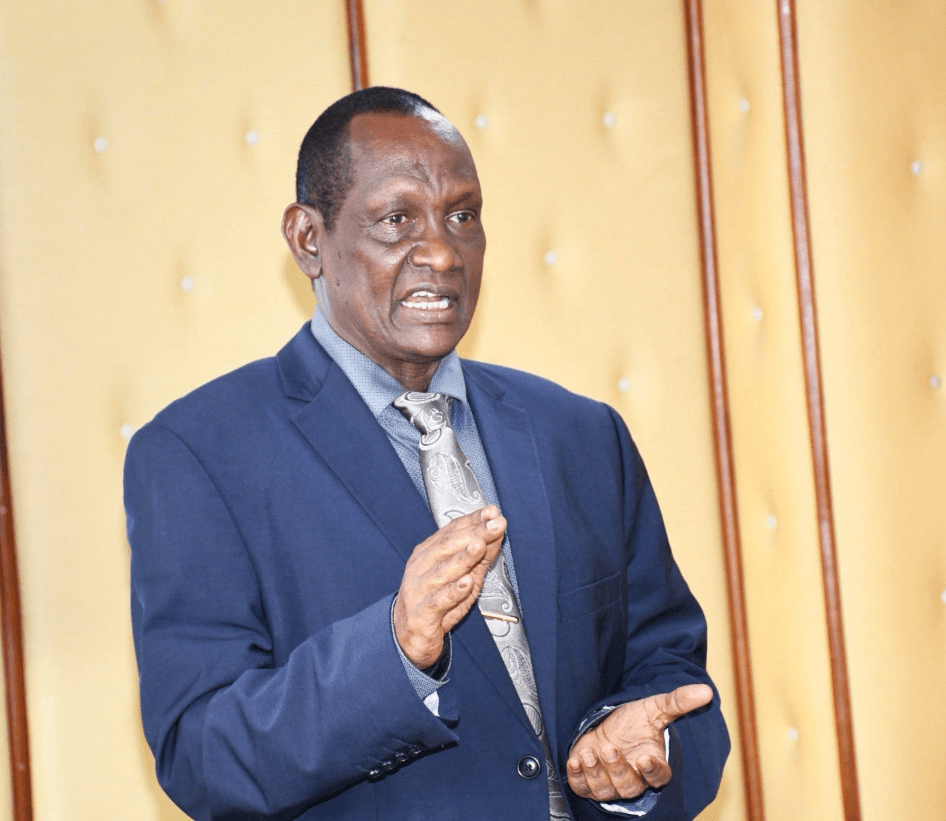
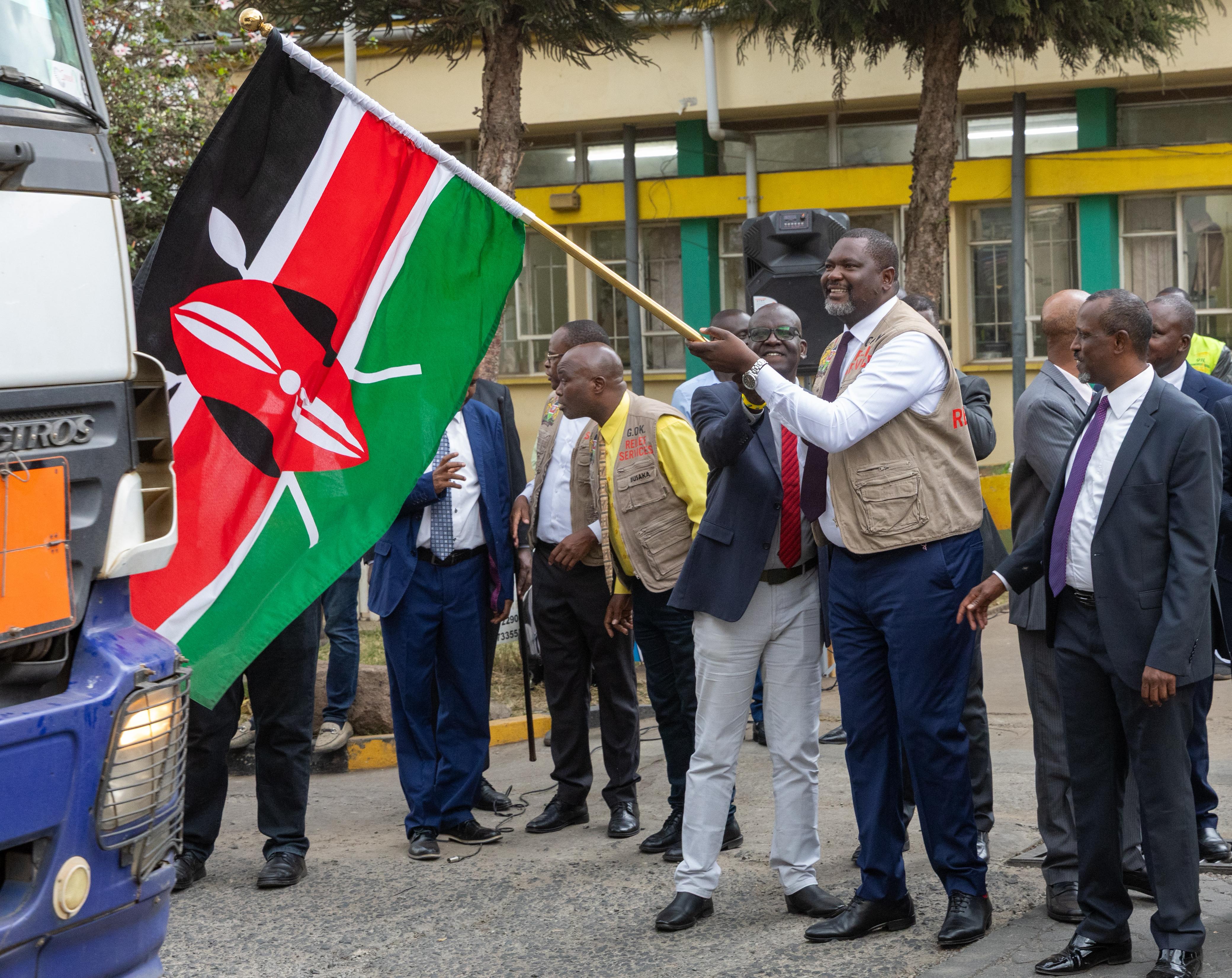 Cabinet Secretary for Public Service, Human Capital Development and Special Programmes, Geoffrey Ruku flagging off a major consignment of relief food to Mandera and Turkana counties./HANDOUT
Cabinet Secretary for Public Service, Human Capital Development and Special Programmes, Geoffrey Ruku flagging off a major consignment of relief food to Mandera and Turkana counties./HANDOUTThe government has intensified its efforts to address the ongoing drought crisis, with Cabinet Secretary for Public Service, Human Capital Development and Special Programmes, Geoffrey Ruku flagging off a major consignment of relief food to Mandera and Turkana counties—two of the regions most severely affected by the prolonged dry spell.
The dispatch, which took place at the National Cereals and Produce Board (NCPB) depot in Nairobi, marks the beginning of a broader government intervention aimed at supporting drought-stricken communities across Kenya’s 23 Arid and Semi-Arid Land (ASAL) counties.
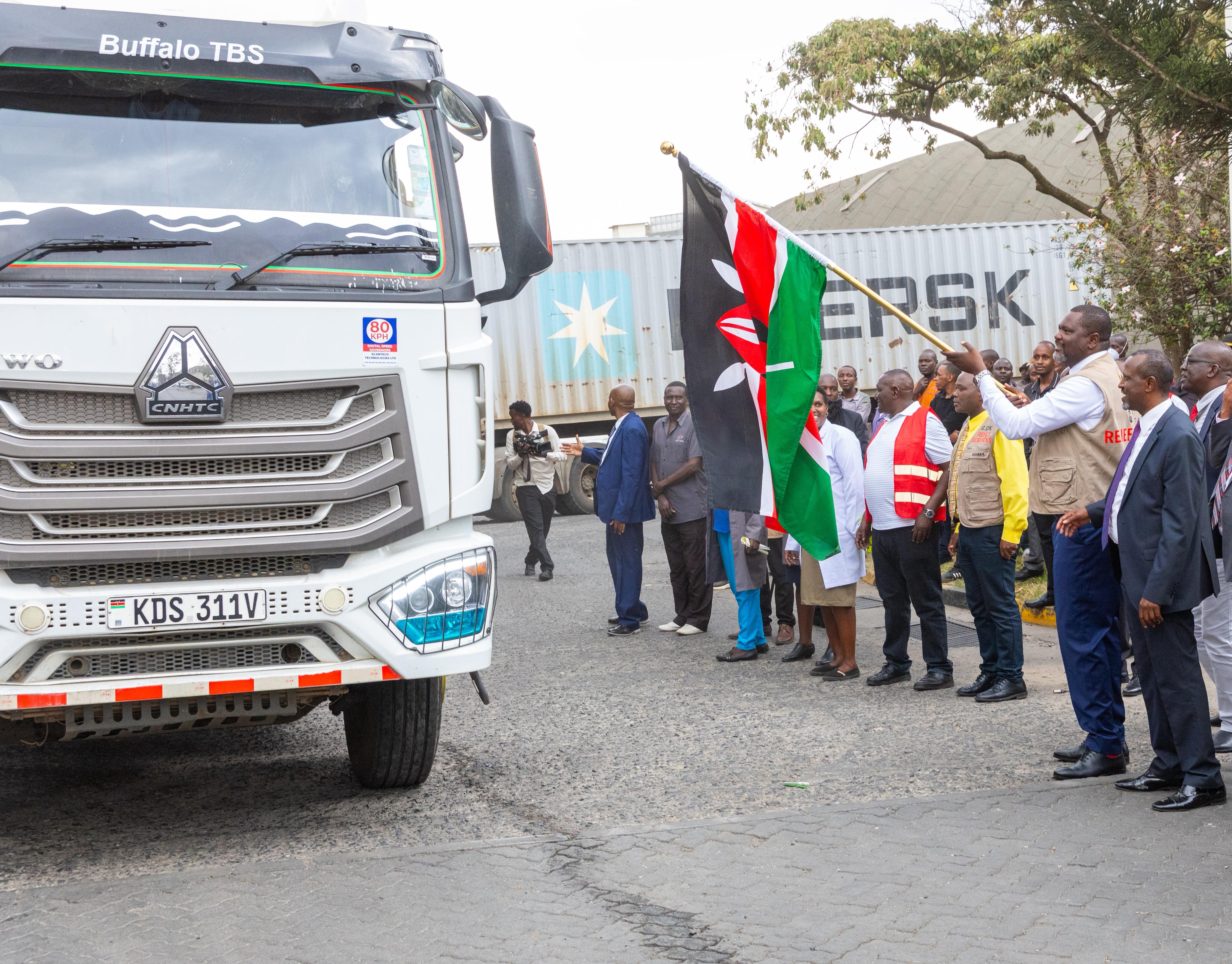 Cabinet Secretary for Public Service, Human Capital Development and Special Programmes, Geoffrey Ruku flagging off a major consignment of relief food to Mandera and Turkana counties./HANDOUT
Cabinet Secretary for Public Service, Human Capital Development and Special Programmes, Geoffrey Ruku flagging off a major consignment of relief food to Mandera and Turkana counties./HANDOUTIt followed a high-level consultative meeting held the previous week, chaired by CS Ruku, to strategise on immediate and long-term drought mitigation.
According to recent data from the NDMA, an estimated 2.15 million people across the ASAL counties are currently in urgent need of food assistance.
CS Ruku underscored the government’s commitment to ensuring that no Kenyan dies of hunger, especially in light of forecasts predicting below-average rainfall in the upcoming October to December short rains season.
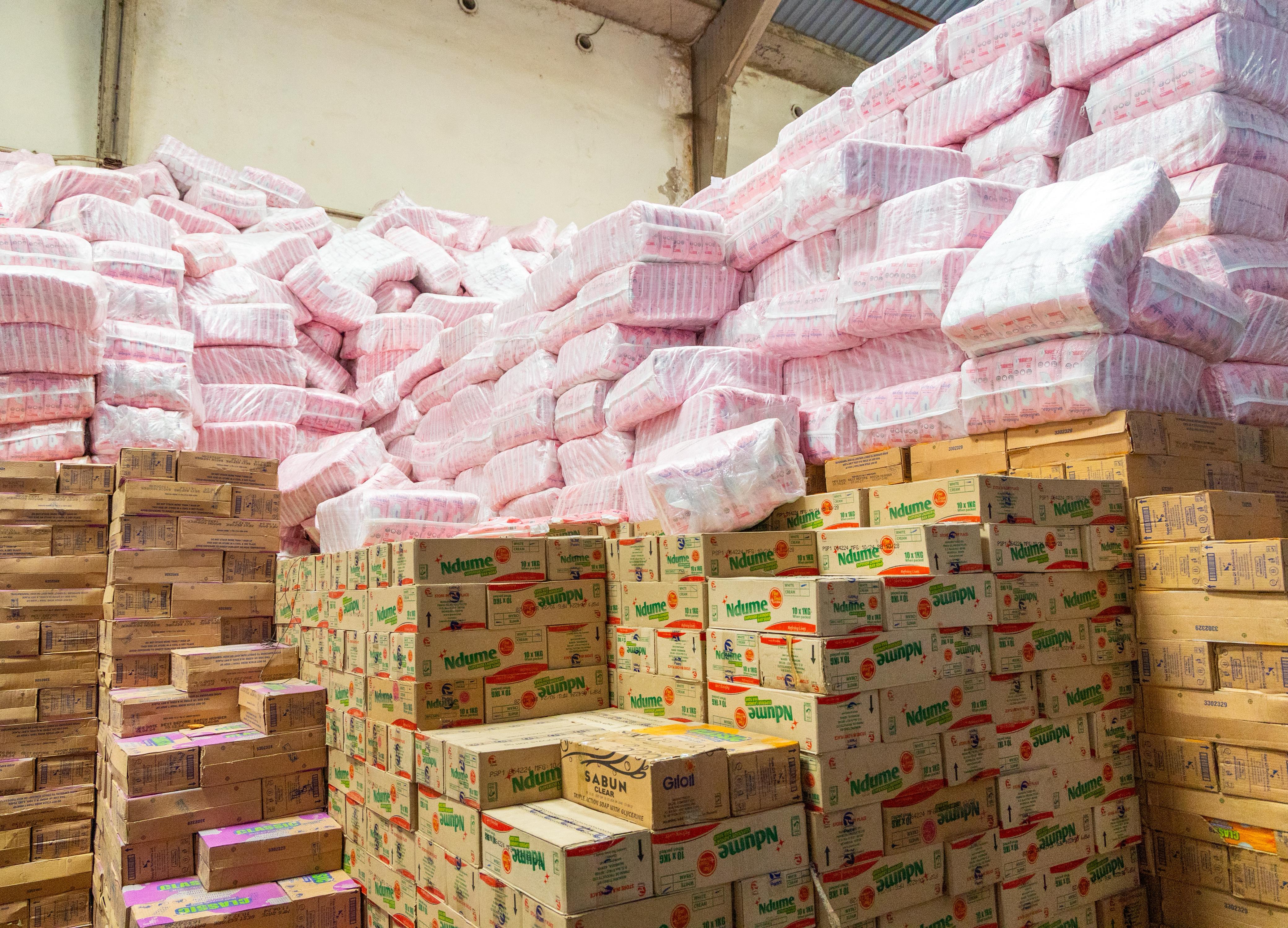
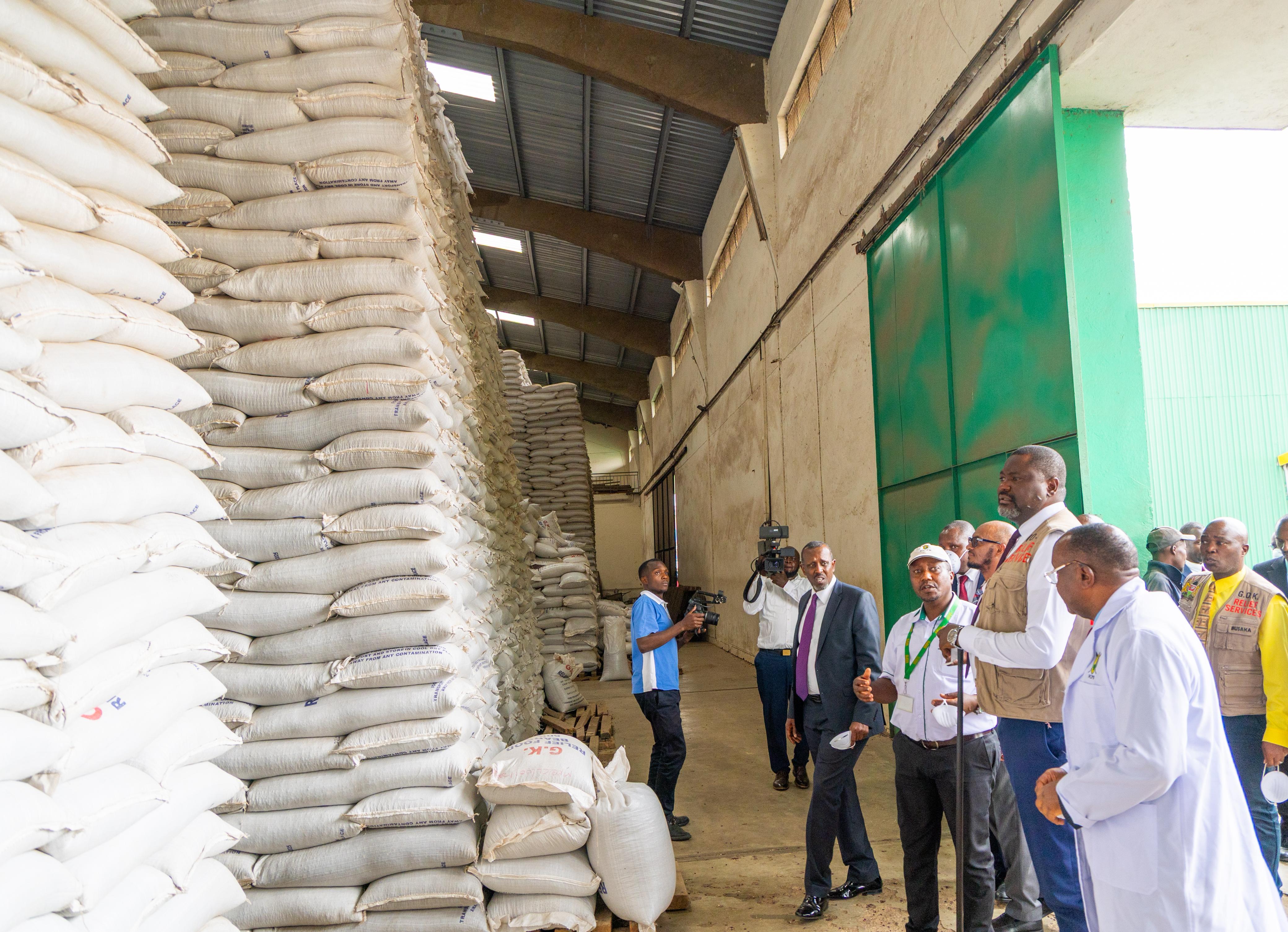
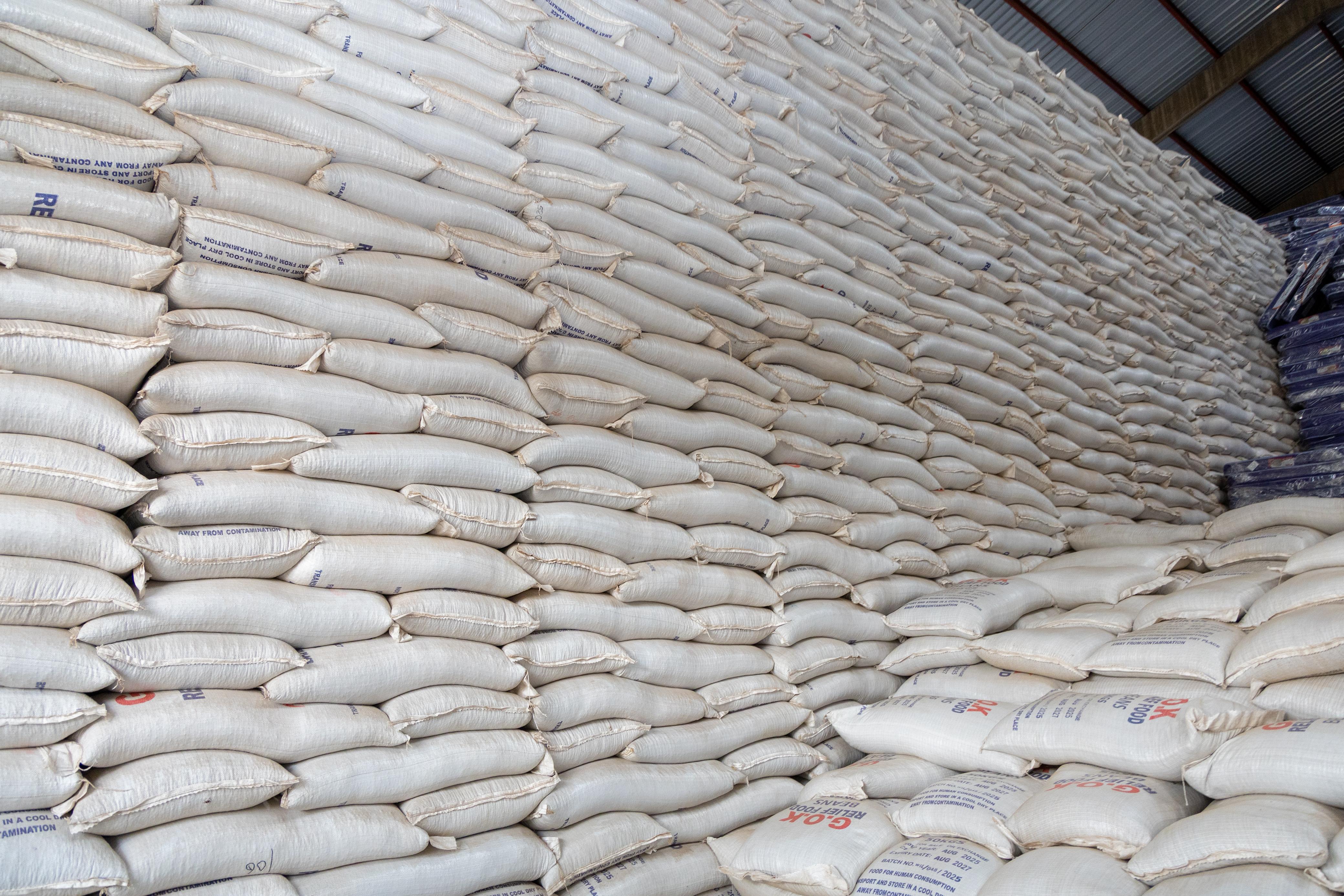
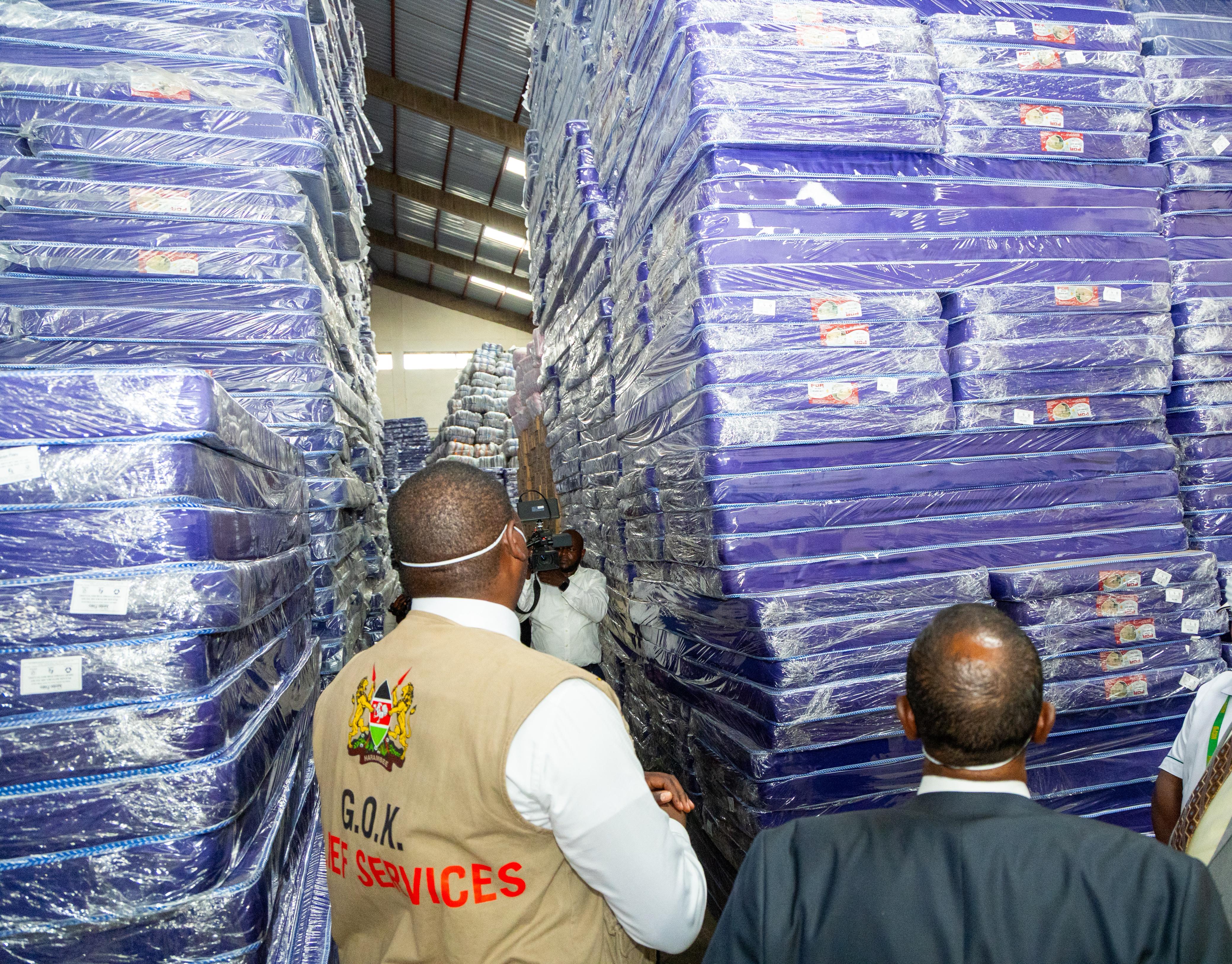
The Ministry estimates that this consignment will support approximately 204,600 people in Turkana and 287,700 in Mandera. Before the flag-off, CS Ruku conducted an inspection of the NCPB stores to verify stock levels and confirmed that the government has enough food reserves to respond effectively to the drought.
He emphasised that similar consignments will soon be dispatched to all other affected counties, ensuring no region is left behind.
“The government has adequate food in stock and logistics in place to ensure every affected community receives timely support,” Ruku assured.
“We are rolling out relief efforts across all 23 drought-affected counties to reach those most in need.”
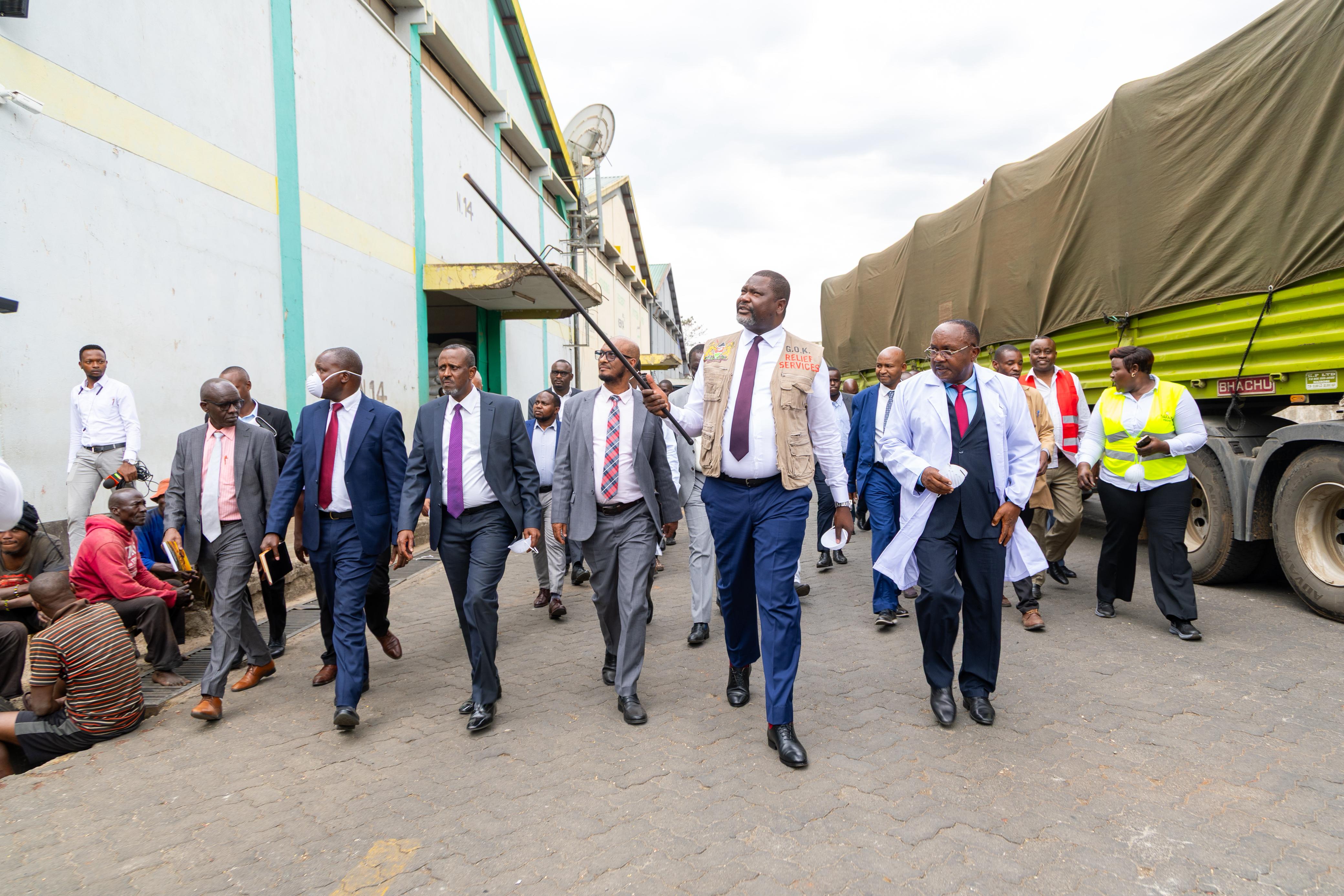 Cabinet Secretary for Public Service, Human Capital Development and Special Programmes, Geoffrey Ruku during the flagging off of a major consignment of relief food to Mandera and Turkana counties. /HANDOUT
Cabinet Secretary for Public Service, Human Capital Development and Special Programmes, Geoffrey Ruku during the flagging off of a major consignment of relief food to Mandera and Turkana counties. /HANDOUTThey described the intervention as timely and critical for sustaining affected populations. While stressing the importance of immediate relief, CS Ruku also highlighted the need for sustainable, long-term solutions to Kenya’s recurring food insecurity.
He revealed that the government is scaling up investments in irrigation, water harvesting, and climate-resilient agriculture to enhance community resilience in ASAL regions.
“Relief food is essential in the short term, but it is not sustainable,” he noted.
“We are committed to long-term solutions that empower communities and reduce dependency on aid.”
CS Ruku also called on various stakeholders, including ministries, county governments, development partners, NGOs, and the private sector, to collaborate in supporting drought-affected populations.
“We must all come together, government, private sector, NGOs, and local leaders, to make sure no Kenyan sleeps hungry,” he said.
As the relief trucks departed Nairobi en route to the northern counties, the government reaffirmed its readiness to scale up interventions and ensure that help reaches every Kenyan in need.













